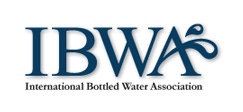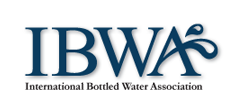Bottled water provided for those affected by California Wildfires
March 11, 2015


IBWA
Members of the International Bottled Water Association (IBWA) stand ready to assist people living and working in areas affected by the California Wildfires, to make sure they have access to clean, fresh, safe and reliable drinking water. Ash from the massive Rim wildfire has already begun to fall on Yosemite National Park's Hetch Hetchy Reservoir, a major source of San Francisco's drinking water, and utility officials have expressed concern about maintaining the quality of reservoir water. About 2.6 million people in the San Francisco Bay area get 85 percent of their drinking water from the Hetch Hetchy.
As always, in times of emergency and natural disaster, the bottled water industry provides clean, safe, and reliable drinking water to those in need, including first responders and firefighters. Throughout the years, bottled water companies have immediately responded to the need for clean water after disasters such as hurricanes—most recently when Sandy extensively impacted the Northeast, earthquakes, wildfires, flooding, and tornados—like the one that devastated the town of Moore, OK.
Unfortunately, in 2007, San Francisco shortsightedly banned any city department or agency from using city funds to purchase bottled water. The enacting rule, Executive Directive 07-07, provides no emergency waiver from this permanent ban. Therefore, if municipal water supplies are suspended, city and county employees may be left without clean water in the workplace. They would then likely be forced to purchase their own safe and reliable bottled water with their own funds, even when at work.
Having access to safe, clean drinking water is important to everyone's health and well-being, but this becomes paramount during disasters such as this when municipal supplies may become compromised. During these times, bottled water is a necessary and reliable option to deliver clean, safe drinking water.
Bottled water is comprehensively regulated by the FDA as a packaged food product and it provides a consistently safe and reliable source of drinking water. By federal law, the FDA regulations governing the safety and quality of bottled water must be at least as stringent as the Environmental Protection Agency (EPA) standards that govern tap water. And, in some very important cases like lead, coliform bacteria, and E. coli, bottled water regulations are substantially more stringent.
Source: IBWA
.
About the Author(s)
You May Also Like


